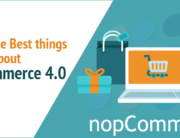Every business today is a connected system of varying digital services. Majority of these digital services are micro services that collectively formulate a wholly functioning business. One of the most important tools used to create these digital services are APIs or Application Programming Interfaces.
These tools are so important for businesses that in the year 2016, over $500 million was invested in API companies. This figure doesn’t include the major acquisitions of a number of API companies by major organizations.
Below we take a brief look at what APIs are.
What are APIs?
An application programming interface (API) allows one web-based application to interact with another application.
In simple terms, APIs are a set of instructions that guide developers to operate a particular application or function by connecting it to a relevant digital service.For example, an online merchant wants to encourage customers to sign up for a weekly newsletter and wishes to keep track of recipients in an email marketing tool like MailChimp. MailChimp offers an API so that the merchant’s web developer can have access to its features. Hence the email marketing service and the merchant site are closely connected such that customers register on the merchant’s site but the emails are handled by the email service’s site.
This is how APIs are responsible for boosting a website’s functionalities.
ow that you have a brief understanding of APIs, let’s take a look at some of the most popular types of APIs that are being used by major ecommerce organizations today.
10 Types of APIs Major Ecommerce Retailers are using
1. Social Proof APIs: Bauble Bar

Bauble Bar is a top maker and retailer of jewelries and accessories. Based out of New York they design and create all their own products and sell them online through their store.
Social Proof is a demonstration that highlights the experiecne of customers who previously bought the products or services sold by the retailer. This encourages and makes online shoppers feel more comfortable in buying a product from a store that others have had a pleasant experience with. Social Proof includes a number of aspects like social media shares, followers, testimonials and the most important of them all, reviews.
Bauble bar utilizes social proof in the form of Instagram followers and feeds. They showcase their product images, number of likes of those products, customers wearing their accessories etc. This also opens up a completely new channel of social selling.
2. Site Search APIs: Quicksilver

Quicksilver is a pretty renowned clothing brand around the world. Over the years, Quicksilver has become the most recognized clothing brand in the action sports market.
The search function of any site is a highly important aspect of it. It helps users find exactly what they need and hence delivers a pleasant user experience. A good site search function should include suggestive search, typo tolerance, synonym search, different language support and drill down features. These altogether help users navigate through the extensive pages of your website better.
The Quicksilver online store offers a wide range of products under a wide range of categories. A smooth and intuitive site search function allowed their customers to have a smoother experience while searching for products.
3. Shipping APIs: Soylent

Soylent is a pioneer in food technology, producing healthy, functional foods. The first iteration of a simpler and more efficient food source was developed in 2013 and is sold online ever since.
The final straw of the sale includes shipping the product. Shipping can sometimes prove to be a rather complex procedure. However a shipping API can automate the whole process from the point a sale is made to the point the product reaches the customer. It can automatically send commands to your warehouse to ship a product, help you live track the product delivery and even send emails asking for feedback to the customers.
Soylent products have quite a large customer base that is increasing exponentially. Supervising the process manually was becoming tedious and hindering with their growth. A shipping API automated the whole process and even provided live shipment tracking making it much more efficient.
4. Affiliate API: Rakuten

Rakuten.com is one of the top marketplaces that connects retailers all across America to their vast customer base. They offer a wide selection of over 18 million products.
Affiliate APIs are primarily those that connect you to an affiliate merchant’s website or to their inventory directly. This way whenever the merchant’s inventory or website is updated with new products, or old products are out of stock, your site is automatically updated in the same way. This takes away the tedious task of manual checking and also removes the possibility of human error which could cost you your customers.
Since Rakuten is a rather large marketplace with a very large base of affiliate merchants, a manual process for updating the product stock wasn’t even an option. Affiliate APIs helped them automate the whole process that included updating product listings, product stock statuses, product images and even delivering sales transcripts to the merchants.
5. Anti-Fraud API: Wanelo

Wanelo is another popular marketplace that connects big brand retailers, independent boutiques etc. to customers across USA. With over 550,000 stores, Wanelo claims to be a mall on their users’ phone.
As the name suggest, anti-fraud APIs protect online stores from various online fraud practices. They use algorithms to monitor the sales activities of users right from the time they enter the website. They are regularly updated to determine sales behaviors that raise red flags or seem to be in compliance with the latest fraudulent techniques of online scams.
Since Wanleo has a very large merchant and user base, it became mandatory for them to employ a comprehensive security system for their store. The Anti-fraud APIs protect them from becoming a victim to any type of online fraud.
6. Recommendation Engine API: Penguin Random House

Penguin Random House is one of the world’s largest book publisher. Their online store uploads over 70,000 digital and over 15,000 print books each year published by various authors.
Recommendation engines are sometimes connected with social proof APIs to categorize products that are most liked, most popular and most bought among their users. This helps it create a list of recommendations for their user base. Certain advanced recommendation engine APIs also track a user’s online behavior to create a personalized list of products they might like.
Penguin Random House uses such a recommendation engine API that provides their users with a list of books they may like according to the mood they select. This list is created by scraping data from Pinterest boards of other users to determine the most trending books.
7. Personalization API: Groupon

Groupon offers is a vast online marketplace providing people discounts on things to do, see, eat and buy. They provide small businesses customizable and scalable marketing tools to help them attract and retain customers.
Personalization APIs help to personalize user experiences either through website content or by marketing strategies. These APIs track a user’s online and social media behavior to help you determine what they would be looking for. It also collects data of the users previous site visit, their in-site search etc.
Groupon makes use of this data to customize and send more targeted emails to their customers. They customize and send discounts and offers of similar or closely related products and services.
8. Price Comparison API: Revolabs of Yamaha Group

A subsidiary of the Yamaha Group, Revolabs Inc. is the premier provider of audio solutions for unified communications, enterprise collaboration and professional audio applications across a wide range of markets.
Price comparison APIs allow businesses to monitor their competitors’ pricing. These APIs keep a check at them and automatically report any fluctuations in pricing of the competitors for the same group of products. This information is essential for price optimization and determining other pricing strategies especially during specific times of the year when sales are in hype.
Revolabs doesn’t offer its products online, it only showcases it. However, to keep themselves at a price advantage they strategize their product costs based on the cost of their competitors of the same product in a particular market. This helps them stay ahead of everyone else.
9. Marketing API: Warby Parker

Warby Parker is an American brand of prescription eyeglasses and sunglasses. It is the largest online retailer of eyewear in America and Canada.
Marketing APIs are used to automate some basic and some advanced techniques of online marketing. These include online ads, targeted emails, personalized user experience etc. Similar to personalization APIs, they too track a user’s online, social media and on-site behavior. However, marketing APIs also automatically execute the marketing strategies.
Warby Parker is known for its whimsical marketing emails and advertisements and it is all done with the help of such marketing APIs. Based on the customer data, discounts, special offers and other exciting products are presented to them through various techniques.
10. Product Information API: Amazon

Amazon is the world’s largest marketplace that is used by retailers and customers spread all across the world. It includes a very vast range of big and small branded merchants that provide a vast range of products for its inventory.
Product Information APIs are used to connect product catalog web pages to the inventory database. These databases then automatically populate your online store’s product catalogs with product descriptions, images, titles etc. New products are automatically added to the online database while the out of stock products are marked and kept as such unless the inventory is refilled.
Since Amazon has so many merchants selling their products online, they use such product information APIs to connect to their merchant’s databases to automatically update all their product catalogs. This makes it easy for Amazon to efficiently maintain such an extensive product base.
To sum up, APIs allow all sorts of web-based applications to interact. This interaction allows merchants to add a number of unique features to their site and improve business processes through automation. However, in most cases, integrating an API will require the help of a professional ecommerce developer. This is especially true in cases where the functions of two APIs are linked and need to interact among themselves a little.
The key takeaway from here is the existence of APIs and their benefits to online ecommerce store owners. There is a possibility that you are already using a couple of APIsy, but there are definitely a lot more that you might be missing out on. And these could be the ones keeping you away from your customer base.







Leave A Comment